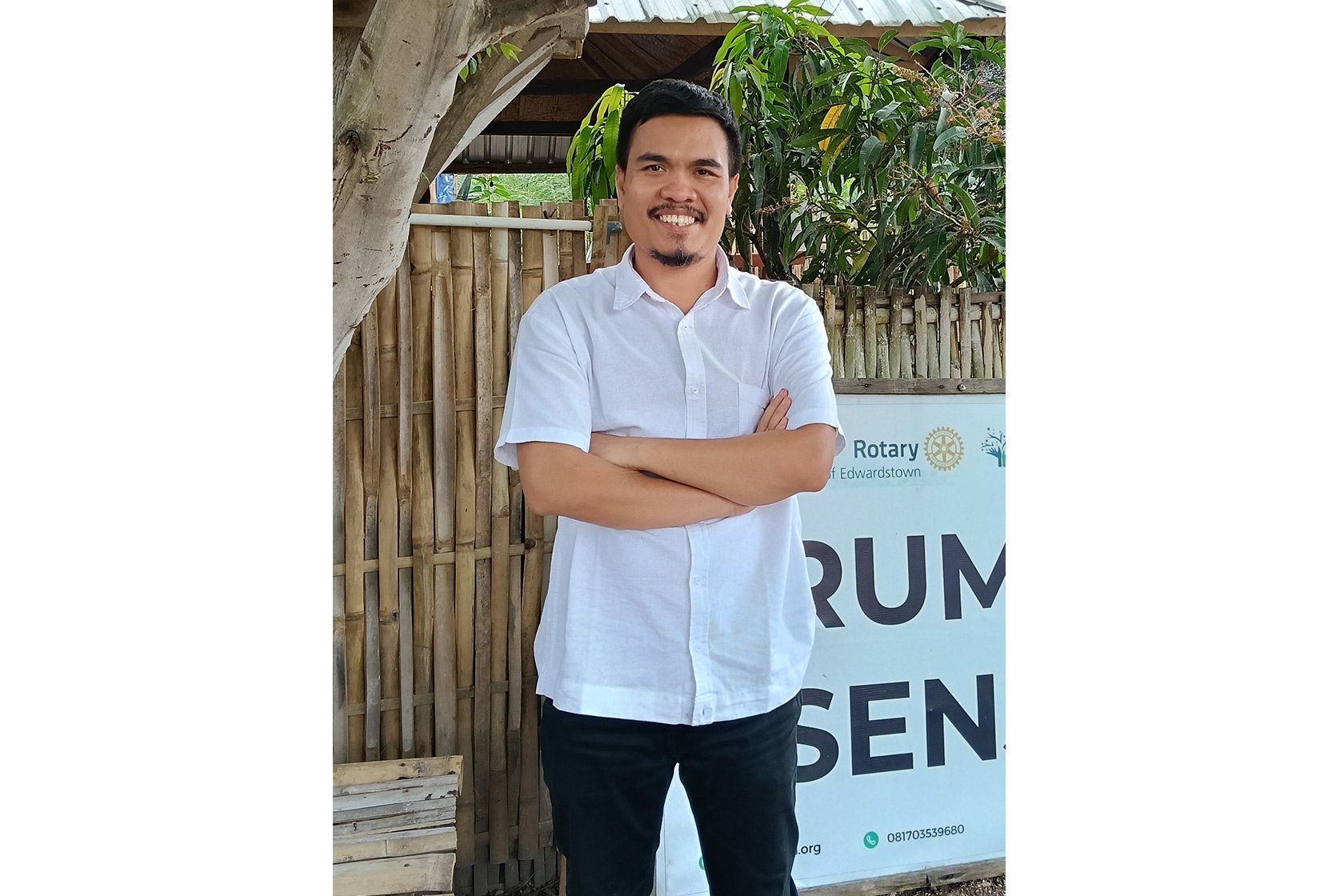
24 November 2025
Join A Discussion on Pursuing a PhD with Australia Awards: Climate Resilient Communities and Energy Transition
Are you curious about doing a PhD abroad, especially in Australia? Whether you are already planning... Read more
The Australia Awards are prestigious, transformational scholarships and short courses offered to emerging leaders for study, research and professional development in Australia

14 October 2024
 Romy Hidayat: Growing a Place Where Older People Are Empowered
Romy Hidayat: Growing a Place Where Older People Are Empowered
Romy Hidayat was motivated to study in Australia to help mothers and babies in West Nusa Tenggara. But an internship in aged care put him on a new path: reimagining safe and respectful support for older people.
Romy arrived in Australia in 2015 on an Australia Awards Scholarship to study a Master of Public Health at the University of Adelaide. He was driven to lower the high maternal and infant mortality rates in West Nusa Tenggara. According to the population census, the infant mortality rate was 48 per 1,000 live births in 2010, and there were 350 maternal deaths per 100,000 live births.
Yet, his passion and aptitude for working with senior citizens were reawakened when he interned at Adelaide Aged Care.
After graduating in 2018, he founded Rumah Senja in Desa Jenggik, East Lombok. The community-based social institution aims to enhance the well-being of older people and promote healthy ageing.
Rumah Senja’s management and programs are based on the theoretical frameworks and concepts Romy learned in Australia. These include a comprehensive approach to older people, recognising their diverse characteristics and life experiences. These things ensure that aged care services are safe and respectful of people's needs and interests. Romy modifies the frameworks according to the specific needs in West Nusa Tenggara.
“The study experience and knowledge that I learned in Australia have clearly had a very significant influence on the development of personal potential and the growth of Rumah Senja as a place for the elderly to remain empowered,” Romy explained.
Three Pillars Supporting Healthy Ageing
The foundations of Rumah Senja are three pillars: social, economic, and ecological. In the social pillar, one activity is monthly health monitoring for 120 local seniors. Donations from Australian charities have funded cataract medication for 1,000 senior members. Those needing hospital care can use Rumah Senja's free transportation. Furthermore, accommodation is available for those who need treatment at a distant hospital.
In the economic pillar, seniors receive courses like those available in Australia. "But they are looking for something suitable here, for example, a course of roasting coffee, which will later be sold as Kopi Rumah Senja (Rumah Senja Coffee),” Romy said. “There are also courses in the form of investments. For example, an older person is given a cow to raise and manage."
The ecological pillar gives older people the tools to become environmental advocates. These involve turning household trash into organic fertiliser, managing water, and managing integrated farming practices, including planting 3,000 moringa trees.
There are about 120 members at Rumah Senja, who Romy classifies as either entirely independent, moderately dependent, or very dependent. This is needed to ensure they participate in the most suitable programs. "So there is a mapping that we do,” he said. “But the most important thing is the concept of ‘don't talk about us without us’ because the ones who understand their needs are the elderly."
Romy and Rumah Senja have received five awards in recent years, recognising their contributions. These are the Drinking Water and Environmental Health Award 2022 from the National Development Planning Agency (Bappenas), the SDGs Action Award 2023, also from Bappenas, the Innovative Government Award 2023, the Ministry of Social Affairs Award 2024 and the 2024 National Exemplary Medical and Health Worker Award for community-based integrated and supportive program for better health and quality of life since 2020.
Australian Thinking and an Expanding Agenda
Romy said everything he had accomplished was intrinsically linked to his decision to pursue further study in Australia. It had been his goal since high school to study there. However, when the time came, he felt nervous about relocating his family to Australia.
It was the right choice. Romy said Australia set an excellent example for Indonesia regarding public health management. He not only learned a lot but also made many connections that have helped Rumah Senja grow.
"Support from the Australian Government helps the Rumah Senja program run,” he said. “Besides the government, some (charitable) foundations cooperate and provide financial support. Australian education also greatly impacts the way of thinking.”
Rumah Senja has permanent staff and hosts volunteer opportunities for youth. Romy hopes to expand to five districts within two years and act as a model for other services. They also have an internship program, which has attracted scholars from as far as the Netherlands. "Some people from Utrecht University come for internships and study community-based elderly living."
In the future, Romy wants to share knowledge to build family-based empowerment for the elderly. "We have many family-based caregivers who don't know how to care for their parents properly,” he said. “We want to open training for them so they can be reliable caregivers for the elderly.”
Share this news on:
 Related News
Related NewsThis website uses cookies to improve your website experience. We may also use cookies to analyse website data so that we can improve our online services. To find out more visit our privacy policy.
